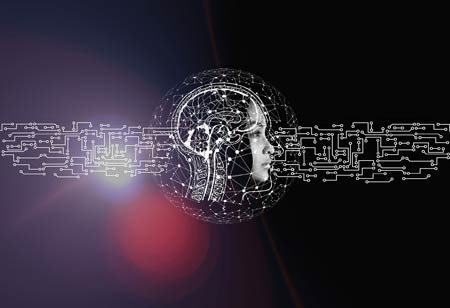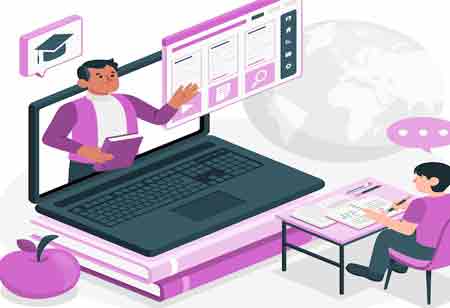THANK YOU FOR SUBSCRIBING
Be first to read the latest tech news, Industry Leader's Insights, and CIO interviews of medium and large enterprises exclusively from Education Technology Insights
Advancements in Technology that Drive the Education Industry
The education sector has been transformed by technology, enabling both students and educators to utilise resources and tools that were previously inconceivable.

By
Education Technology Insights | Thursday, March 30, 2023
Stay ahead of the industry with exclusive feature stories on the top companies, expert insights and the latest news delivered straight to your inbox. Subscribe today.
AI, VR, AR, and LMS have the potential to revolutionise the teaching and learning process, leading to even more groundbreaking innovations.
FREMONT, CA: The education sector has been transformed by technology, enabling both students and educators to utilise resources and tools that were previously inconceivable. Leading EdTech companies have been instrumental in driving this change, introducing innovative tools such as virtual field trips, interactive whiteboards, learning management systems, and online courses to enhance the teaching and learning experience.
Artificial Intelligence (AI)
Artificial intelligence (AI) enables machines to carry out tasks that would typically require human intelligence, such as decision-making, problem-solving, and learning. In the education industry, AI has a positive impact on student learning outcomes, enhances efficiency, and enables personalised learning experiences.
Adaptive learning is a crucial application of AI in the education sector. By using AI algorithms to analyse student performance data, adaptive learning systems offer customised feedback and recommendations. This feature allows students to learn at their own pace, with the content and activities catered to their learning styles and needs.
Chatbots are another way in which AI is utilised in the education field. They are computer programs designed to stimulate human conversation and are implemented in education to provide individualised support and guidance to students. For instance, chatbots can answer queries related to course material, provide feedback on assignments, and offer study suggestions.
In addition, AI is leveraged to create educational software and digital content. AI technology can generate simulations and games that deliver immersive and captivating learning experiences for students. Moreover, AI-powered data analysis can be applied to student performance data to recognise learning patterns and develop more efficient teaching strategies.
Virtual and Augmented Reality
Virtual Reality (VR) and Augmented Reality (AR) technologies offer users immersive, three-dimensional experiences. In the education sector, these technologies are utilised to provide students with interactive learning experiences, virtual field trips, and simulations.
VR and AR technologies allow students to experience historical landmarks, discover different cultures, and even journey through space, all while remaining within their classroom. This results in a more captivating and immersive learning experience for students and eliminates the logistical and financial obstacles typically associated with traditional field trips.
In addition, VR and AR technologies are implemented in providing students with simulated and practical training experiences. For instance, medical students can utilise VR technology to simulate surgical procedures, and engineering students can use AR technology to visualise and manipulate intricate machinery.
Learning Management Systems
Learning Management Systems (LMS) refer to software applications that enable educators to create, manage, and deliver educational content and activities. In the education industry, LMS is employed to enhance efficiency, encourage collaboration, and provide personalised learning experiences.
The primary advantage of LMS is that it enables educators to effortlessly generate and manage digital content, including online courses, quizzes, and assignments. These features streamline the delivery of content to students, allowing them to study at their own pace.
LMS promotes collaboration between educators and students. LMS includes collaborative tools such as discussion forums that facilitate teamwork on assignments and projects.
Lastly, LMS is utilised to individualise learning. Through LMS, educators can monitor student progress and use data to provide personalised feedback and recommendations. This feature enables educators to recognise areas where students may be struggling and offer tailored assistance and resources to help them achieve success.
The education sector is undergoing a radical transformation, thanks to technological advancements that were once unimaginable. With the emergence of AI, VR, AR, and LMS, both educators and students can access innovative resources and tools that enhance learning outcomes and boost efficiency. Although these technologies are still in their early stages, they have the potential to completely revolutionize the teaching and learning process. With the continuous development of technology, one can expect even more groundbreaking innovations that will shape the future of education.







